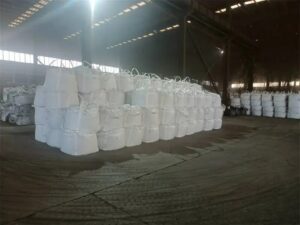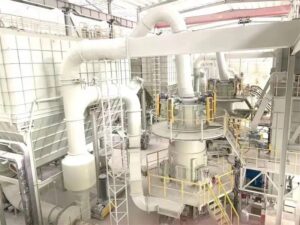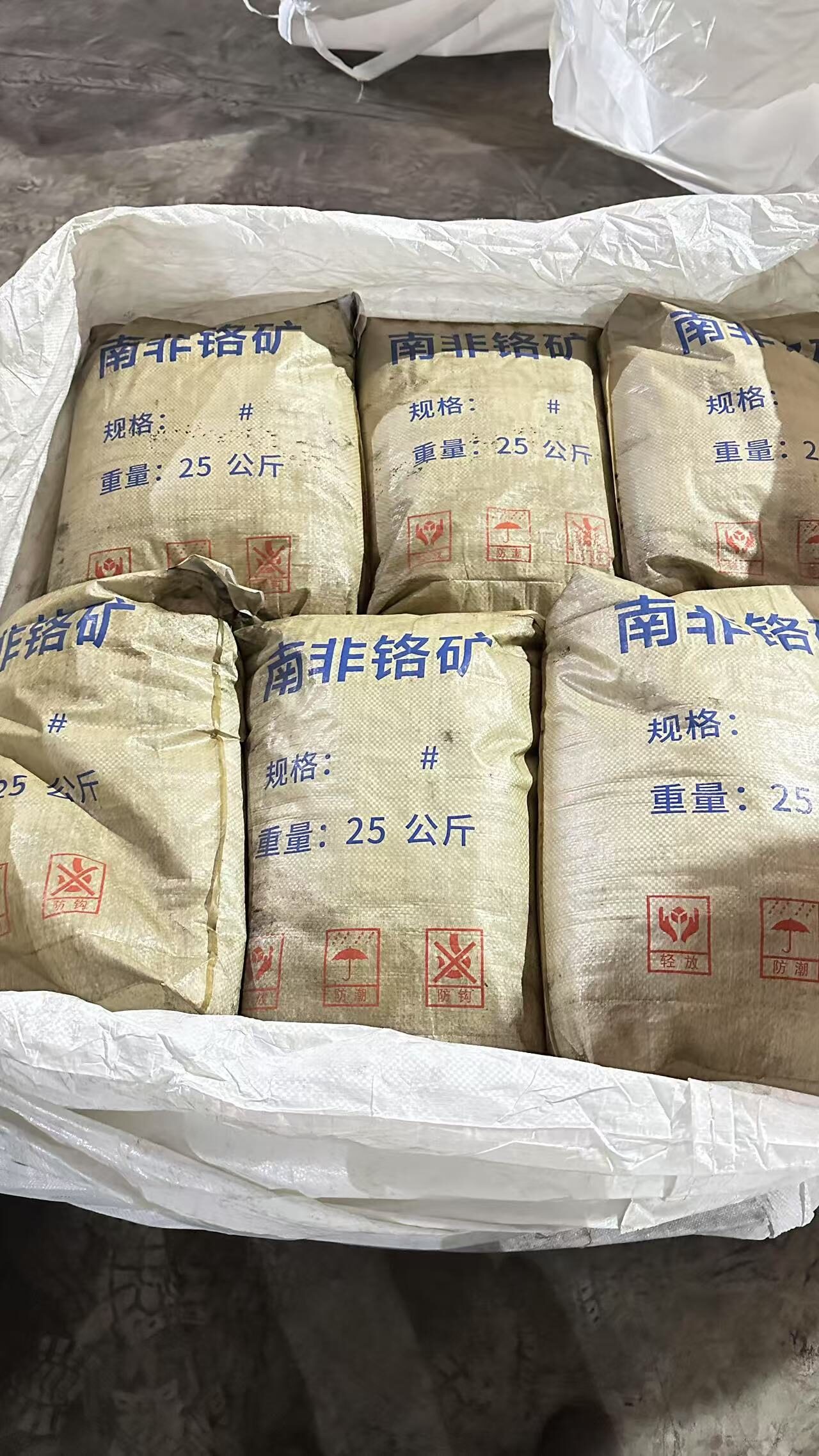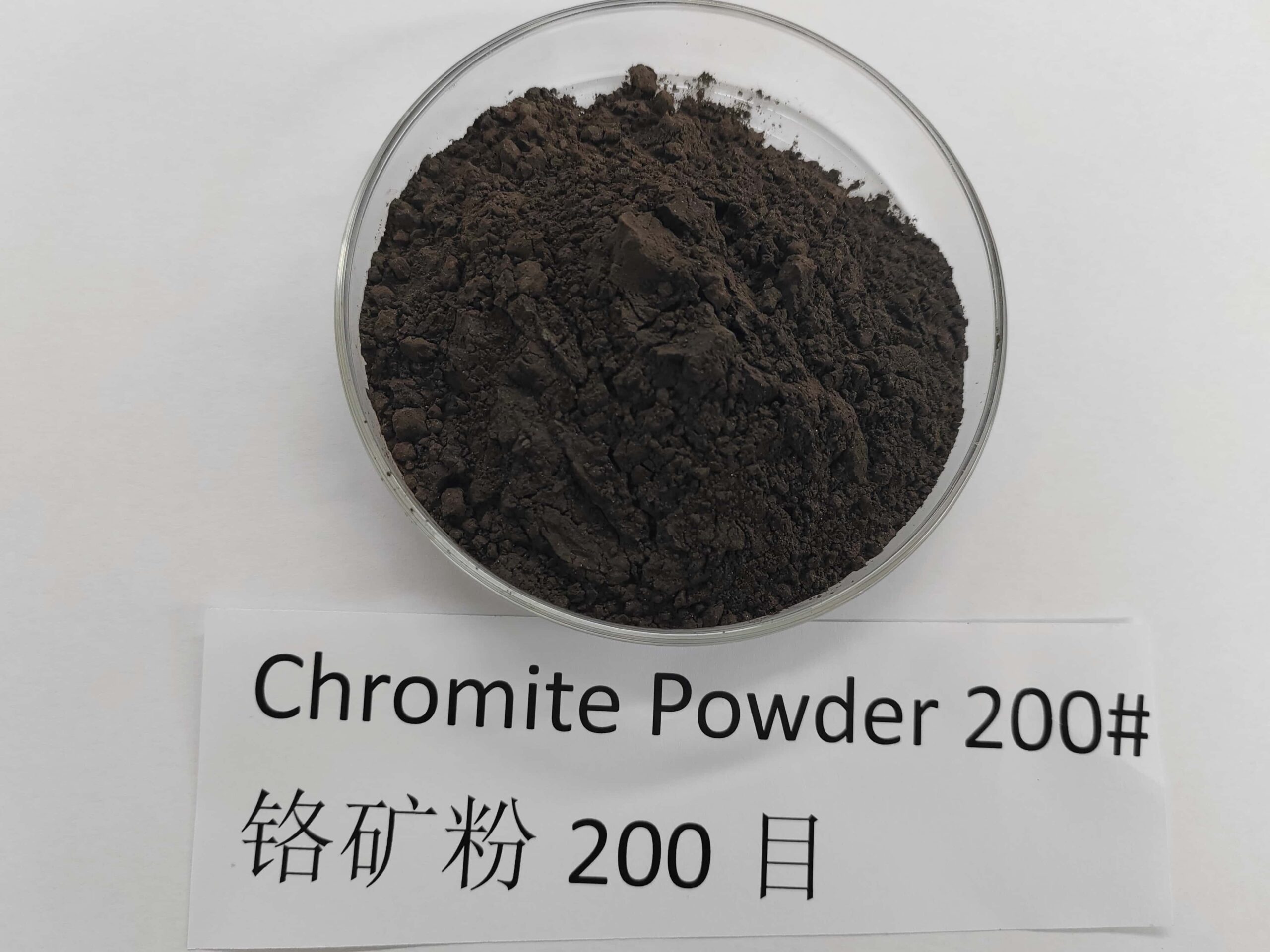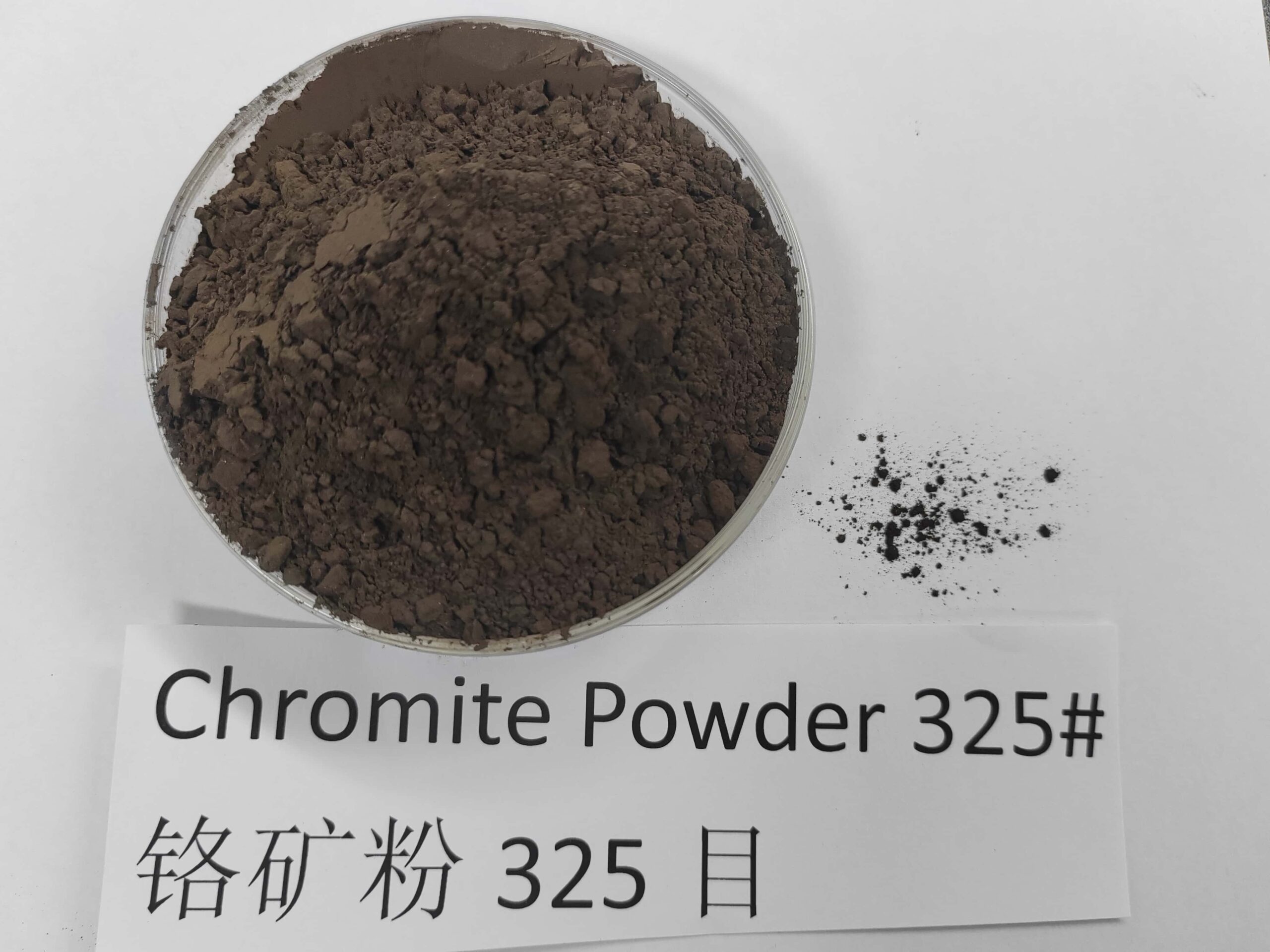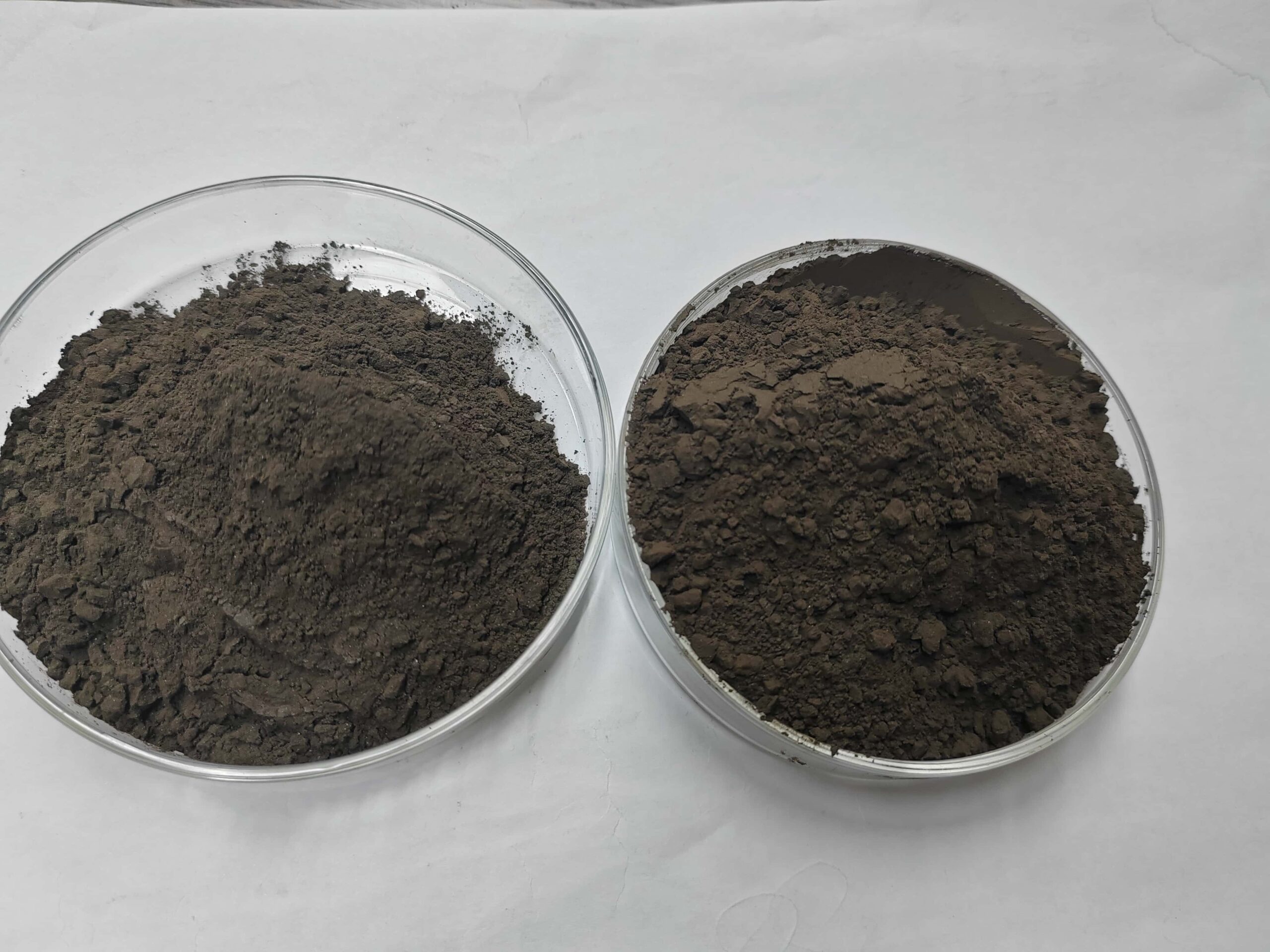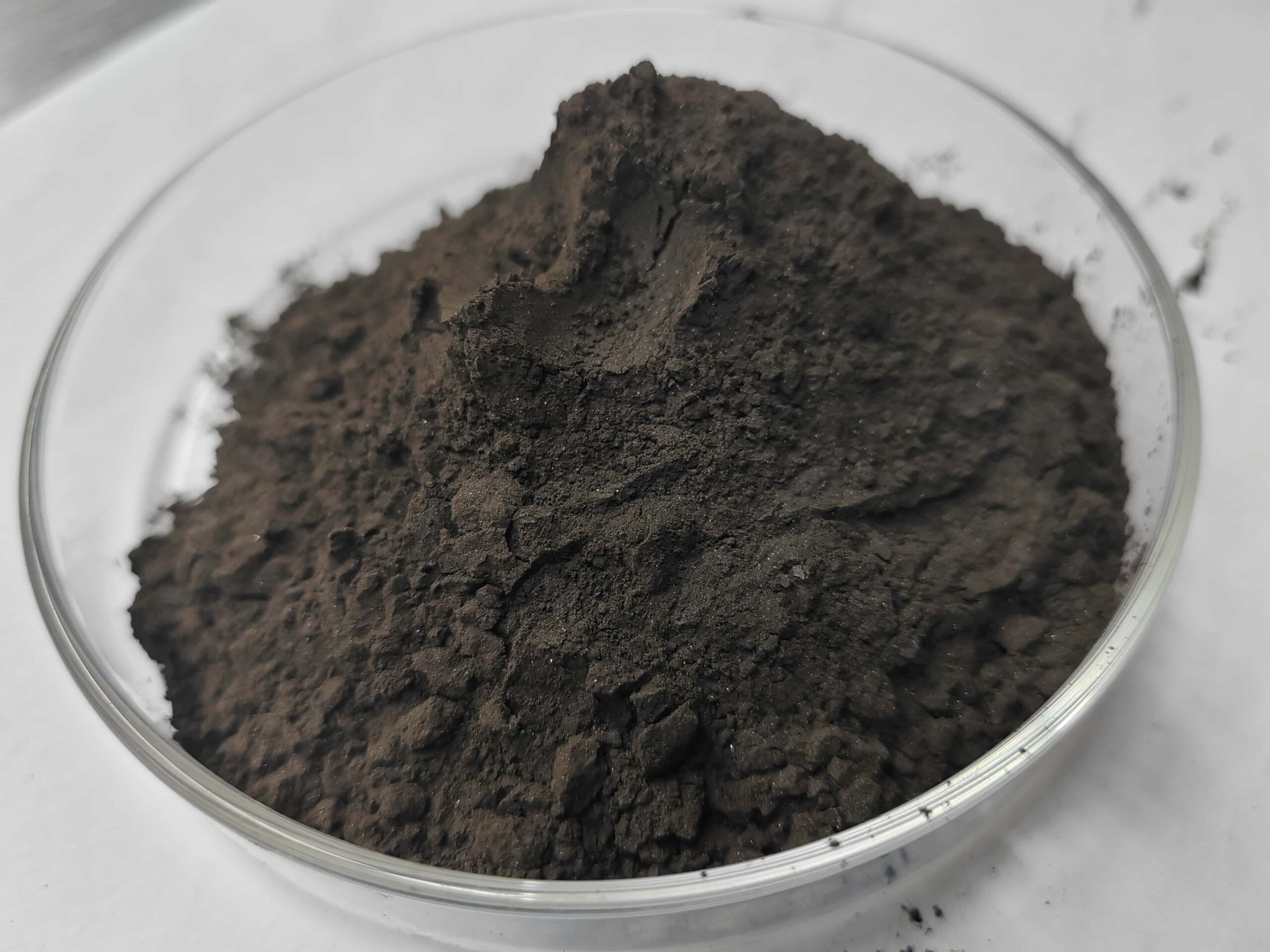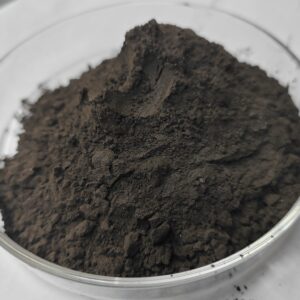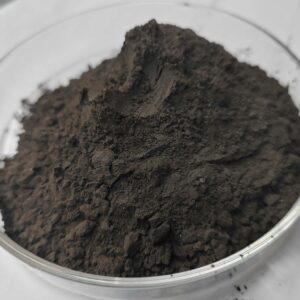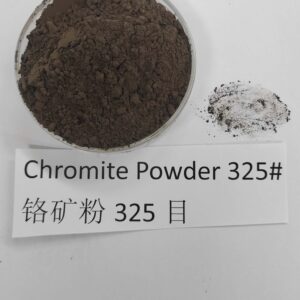Chromium Powder for Glass Manufacturing Colorants
Chrome flour such as 200mesh 325 mesh can be used as wear-resistant aggregates in casting coatings that require high thermal conductivity.
It mainly plays the roles of wear resistance, anti sticking sand, accelerated cooling, and rapid heat conduction and dissipation.
Chrome flour is a fine Iron chromite powder obtained by grinding 48-50% Cr2O3 chrome ore sand with a mechanical grinder, and then screening it through a 200 mesh or 325 mesh sieve.
By controlling the large particles remaining in the sieve, the fineness of the powder is controlled between 0-75um and 0-45um. Special grinding equipment ensures the uniformity and dryness of the tiny particles of chromite flour.
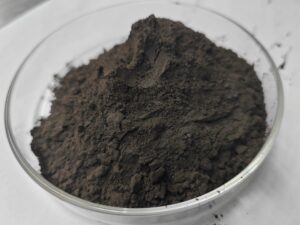
Characteristics of Chromium Powder for Glass Manufacturing Colorants:
- Accurate fineness, with a sieve pass rate of over 97%, and can also achieve full pass according to customer requirements.
- Low moisture content, dry without clumping.
- High refractory temperature. Chromite sand is originally a good casting refractory material, with a melting point of 2180 degrees and a sintering temperature greater than 1850 degrees.
- Superior thermal conductivity. Compared to zircon powder, chromite powder has stronger thermal conductivity.
- Low coefficient of thermal expansion. Although the thermal expansion coefficient of chromite flour is slightly higher than that of zircon powder, it is much smaller than that of silica sand. In terms of the low cost of chromite flour, it has a high cost-effectiveness. It can prevent deformation of castings.
Chemical composition of Chromium Powder for Glass Manufacturing Colorants:
| Chemical | Standard Value | Typical Value |
| Cr2O3 | ≥46.0% | 46.36% |
| SiO2 | ≤1.0% | 0.94% |
| FeO+Fe2O3 | 26-28% | 27.01% |
| AL2O3 | ≤15.5% | 13.62% |
| TiO2 | ≤1.0% | 0.63% |
| CaO | ≤0.3% | 0.12% |
| MgO | ≤10% | 9.35% |
| Na2O | ≤0.5% | 0.12% |
| MnO | ≤0.5% | 0.32% |
| ZnO | ≤0.2% | 0.088% |
| NiO | ≤0.2% | 0.107% |
| P | ≤0.003% | / |
| S | ≤0.003% | / |
Production details of Chromium Powder for Glass Manufacturing Colorants:
